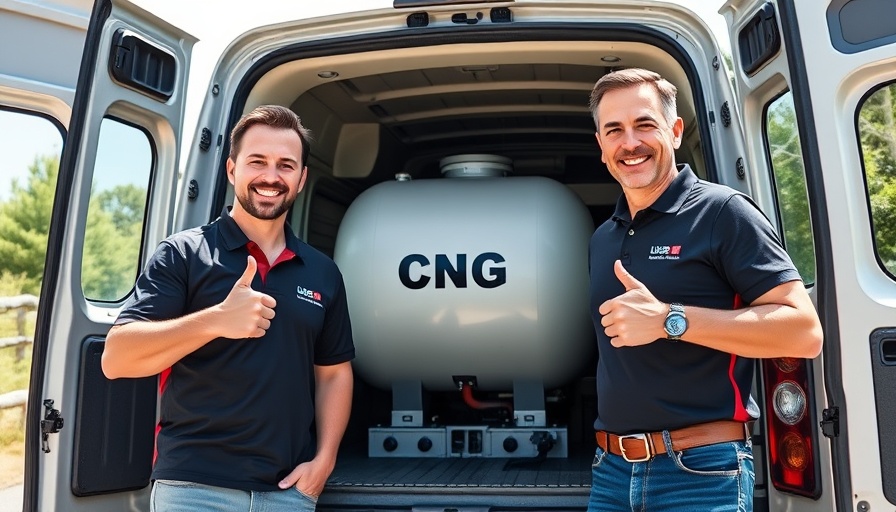
Shuttlers' Sustainable Shift: Embracing CNG Technology
Shuttlers, a startup transforming shared commuting in Nigeria, has made a pivotal move by introducing a fleet of 20 compressed natural gas (CNG)-powered vehicles. This endeavor not only supports the company’s sustainability goals but also addresses rising transportation costs amidst increasing fuel prices in Africa's largest oil producer. According to CEO Damilola Olokesusi, this initiative has led to a remarkable 29% reduction in rider costs while also cutting down carbon dioxide emissions by 23.5 metric tons.
CNG's Rising Prominence in Nigeria's Transport Industry
The adoption of CNG as a more cost-effective and cleaner alternative to conventional petrol is gaining traction in Nigeria, where a range of startups are vying to redefine mobility solutions. Shuttlers has already executed 1,484 trips using the new vehicles, serving over 19,292 passengers. This aligns with a broader trend of tech-driven companies becoming more innovative in an era when consumers are experiencing financial strain due to economic factors.
Safety First: Tackling CNG Concerns
Despite the promising benefits, safety concerns surrounding CNG usage persist. There are fears related to the potential for explosions from gas cylinders, often stored in vulnerable positions within vehicles. However, Shuttlers’ commitment to rider safety is evident, as they’ve equipped their fleet with fireproof canisters and automatic extinguishers. This attention to safety has reportedly resulted in "100% safe trips" during the first quarter of 2025, showcasing how concerns can be effectively mitigated with robust safety measures.
Gearing Up for the Future
As the momentum for CNG adoption continues, Shuttlers plans to expand its non-petrol fleet even further in the upcoming quarter. This step indicates a promising future not only for the company but also for the broader transportation landscape in Nigeria. With sustainability becoming a focal point for many entrepreneurs, Shuttlers is positioned to be at the forefront of a cleaner, more efficient mobility sector.
 Add Row
Add Row  Add
Add 




Write A Comment